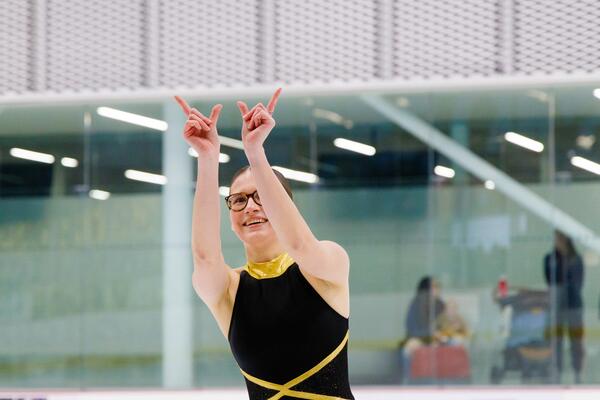
Two top researchers join Waterloo as Canada 150 Research Chairs
$117.6-million federal program enhances science, research and innovation excellence.

$117.6-million federal program enhances science, research and innovation excellence.
By University RelationsTwo international researchers are joining the University of Waterloo as part of a federal initiative to attract top-tier scientists and scholars to Canada.
Kerstin Dautenhahn, one of the founders of the field of social robotics, and Anita Layton, recognized for her work in mathematical biology and medicine, were announced as new Waterloo researchers on Thursday, March 29 as Canada 150 Research Chairs. Each will receive research funding of $350,000 per year for the next seven years.
Dautenhahn and Layton are two of 24 chairs named to universities across Canada under a $117.6-million program to enhance the country’s position as a global centre for science, research and innovation excellence. In all, almost 60 per cent of chairs named are women and more than 40 per cent are expatriates who are returning home.
 Originally educated in Germany, Dautenhahn is joining Waterloo from the University of Hertfordshire where she will be a professor of electrical and computer engineering with the Faculty of Engineering. While here, Dautenhahn will lead a large multidisciplinary research program and collaborate with other experts across campus. Dautenhahn’s extensive accomplishments include breaking new ground with robot-assisted therapy for children with autism, creating an off-campus smart home dubbed Robot House, publishing more than 300 peer-reviewed articles and heading a research team that pioneered studies in human-robot interaction.
Originally educated in Germany, Dautenhahn is joining Waterloo from the University of Hertfordshire where she will be a professor of electrical and computer engineering with the Faculty of Engineering. While here, Dautenhahn will lead a large multidisciplinary research program and collaborate with other experts across campus. Dautenhahn’s extensive accomplishments include breaking new ground with robot-assisted therapy for children with autism, creating an off-campus smart home dubbed Robot House, publishing more than 300 peer-reviewed articles and heading a research team that pioneered studies in human-robot interaction.
Layton comes by way of Duke University in North Carolina, and is joining the Department of Applied Mathematics to continue her research on mathematical and computational modelling of blood flow dynamics and kidney function. Layton’s computational methods have been adopted by others to solve mathematical equations arising in combustion, blood flow and other problems. Layton has published almost 200 research papers in top journals in Applied Mathematics and Physiology.
the Department of Applied Mathematics to continue her research on mathematical and computational modelling of blood flow dynamics and kidney function. Layton’s computational methods have been adopted by others to solve mathematical equations arising in combustion, blood flow and other problems. Layton has published almost 200 research papers in top journals in Applied Mathematics and Physiology.
“I have long admired the University of Waterloo for its spirit of curiosity and passion for innovation,” said Layton. “I look forward to working within the Faculty of Mathematics to facilitate connections between math and other disciplines, and to promote excellence throughout the University.”
Both Dautenhahn and Layton are scheduled to begin their work with the University later this year.

Read more
Dr. Mary Wells recognized for decades of leadership in higher education

Read more
Reka Somogyi receives the Environment Student-Athlete Award in recognition of excelling in sport and studies

Read more
The Government of Canada announces funding to support research in food policies and medical devices
The University of Waterloo acknowledges that much of our work takes place on the traditional territory of the Neutral, Anishinaabeg, and Haudenosaunee peoples. Our main campus is situated on the Haldimand Tract, the land granted to the Six Nations that includes six miles on each side of the Grand River. Our active work toward reconciliation takes place across our campuses through research, learning, teaching, and community building, and is co-ordinated within the Office of Indigenous Relations.